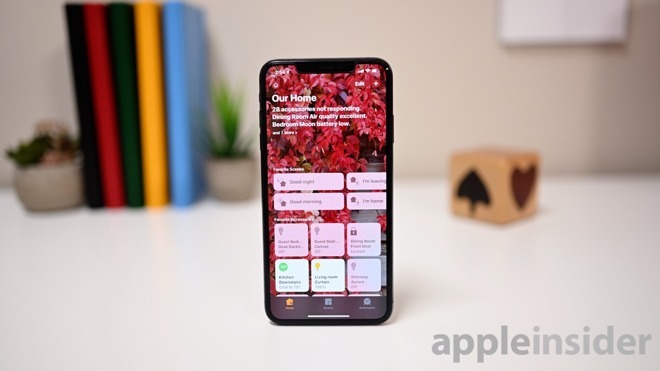Apple open-sources HomeKit Accessory Development Kit to spur adoption, grow new standard
Last updated
Apple has published an open-source version of its HomeKit Accessory Development Kit, allowing more users to experiment with the development of HomeKit accessories. The release is designed to accelerate development of a new universal smart home standard created by a consortium of companies including Apple, Amazon, Google and the Zigbee Alliance.
Portions of the HomeKit Accessory Development Kit (ADK), tools used by vendors and accessory makers to build HomeKit-compatible devices, were posted to GitHub by Apple on Wednesday, the company announced in a post to its developer webpage.
The HomeKit Open Source ADK can be used by anyone to prototype smart home devices. Ambitious users who want to build HomeKit devices for their own home can use it get started, for example. Accessory manufacturers can also use the open-source ADK to test products before formally joining the HomeKit MFi program, enabling proof-of-concept evaluations before embarking on the laborious and expensive process of becoming an MFi partner.
Apple notes individuals and companies planning to sell HomeKit-compatible accessories must use the commercial version of the kit supplied by the Apple MFi program. Still, providing open-source access to key bits of code hints at a major shift in the tech giant's smart home strategy and could ultimately boost the number of HomeKit contributors.
Apple released the Accessory Development Kit for partners in the MFi program in 2018. Contained within the ADK is the HomeKit Accessory Protocol, a part of the HomeKit accessory logic that communicates with the HomeKit platform. Apple made this available to all developers with iOS 12 that same year.
Since then, companies or individuals looking to test out HomeKit only had access to the HomeKit Accessory Protocol and were responsible for all of the accessory logic, adopting the protocol and much more. For those in the MFi program, the ADK stripped away much of the hassle, greatly simplifying the process.
At the time, Apple said with the ADK a functional prototype device could be created within a week and companies would be able to bring an accessory to market in as little as three months.
Now, the ADK is available to everyone, not just those in the MFi program.
On Wednesday, Apple announced the formation of Project Connected Home Over IP, a consortium of companies that hope to develop an open standard that allows manufacturers to more easily build devices that work on multiple smart home platforms and assistants. That could include platforms such as Amazon's Alexa as well as Apple's HomeKit.
Apple said it open-sourced its HomeKit ADK "to accelerate the development of the new universal standard." Further, the company also plans to contribute the HomeKit Accessory Protocol to the working group.
 Andrew O'Hara
Andrew O'Hara














 Amber Neely
Amber Neely
 Thomas Sibilly
Thomas Sibilly
 AppleInsider Staff
AppleInsider Staff
 William Gallagher
William Gallagher
 Malcolm Owen
Malcolm Owen
 Christine McKee
Christine McKee










23 Comments
Sadly, Apple is so far behind in this category. I'm not sure why Google, Amazon or others would want to work on Project Connected Home. The unstable iOS 13 update for HomeKit this fall has made me re-think HomeKit.
HomeKit has been a failure for quite some time. Happy to see that Apple is finally taking note of this fact. (Note : I'm not saying that HomeKit doesn't work well, but it needs a market presence. And right now, HomeKit-designed devices are scarce. Many were promised, few were actually delivered. And most by big companies, few by innovative ones.)
All of the millions of Black Friday plastic hockey pucks that Amazon has sold and continues to sell will end up as ocean garbage since they will not have the hardware required to support the new secure protocol. Apple has had a slow HomeKit adoption rate - but not just due to initial poor software implementation, promotion, and proprietary tech - but also due to push back from vendors who take short cuts and don’t care enough about customer security to spend additional money in the required hardware and software development - thus currently sold devices will also become obsolete. The good news is that the titans of tech are joining forces to pool resources to eventually evolve these devices from the current toys and gadgets that they are now to real home products that consumers can ‘invest in’, ‘trust’, and that hopefully will last. And of course the titans will all benefit financially from this good deed.
The main problem for home automation has long been the lack of a standardised communication protocol. Zigbee is one of the most used, and obviously the one with the most traction, but it has limitations too. So the creation of a standardisation body where both Zigbee and Apple are present makes me hopeful that a more secure, more connected standard will happen. Here’s hoping that this project will not take a “Taligent” tangent.